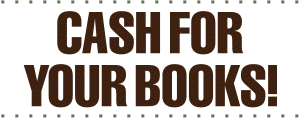
01 May How to Value Antique Books for Buying or Selling
Antique books are a unique and valuable asset that can provide a significant return on investment. However, accurately valuing these rare and treasured items can be challenging. If you want to sell antique books, accurately valuing them is essential to get a fair price for your collection. Here are some tips and advice for maximizing the value of your collection when buying or selling.
Importance of Valuing Antique Books Before Selling
To sell antique books, the first step is to value them accurately. This is important to set a fair price for the book and avoid being taken advantage of by unscrupulous antique book buyers who may offer less than the book is worth. If you want to sell antique books, knowing their value and getting a good return on investment is essential.
Researching the Book Before Selling
The process of valuing antique books begins with researching the book. This involves identifying the book’s edition and printing date, researching the book’s publisher and author, and determining the book’s rarity and condition. Online resources such as bibliographies, reference works, and online catalogs can be helpful for this research. If you want to sell your antique books, knowing their rarity, author, edition, and printing date is essential to determine their value in the market.
Condition of the Book Before Selling
The condition of the book is a crucial factor in determining its value. Identifying the different aspects of a book’s condition, such as its binding, pages, and dust jacket, is vital to assess its overall condition. Understanding the grading systems for antique books, such as the AB Bookman grading system, is also crucial in determining the book’s value. If you want to sell antique books, knowing their condition is critical as it impacts their value and selling price.
Determining the Value of the Book Before Selling
Methods for valuing antique books include using online resources, attending book fairs, and consulting with professional appraisers. Online resources such as AbeBooks, Alibris, and Biblio can be useful in researching the market value of antique books. Understanding pricing data and market trends is also essential in determining the book’s value. Provenance, or the book’s history of ownership, can also significantly impact its value. If you want to sell antique books, researching their value through online resources and consulting with appraisers is essential to know their worth.
Selling Your Antique Books for Cash
When it comes to selling antique books, there are several best practices. Understanding the market and finding the right buyer is essential. Factors that may impact the selling price, such as demand, rarity, and condition, should also be considered. Choosing between selling through a dealer or at auction is also essential. If you want to sell antique books for cash, you need to find the right buyer who understands the value of your collection and is willing to pay a fair price.
Conclusion
Valuing and selling antique books can be challenging, but by following the tips and advice outlined in this article, owners of extensive book collections can ensure they get a fair price for their antique books. Knowing their value and condition is essential to get the best deal if you want to sell antique books. By researching the book, its condition, and its value, you can sell antique books for cash and get a fair return on investment. For more information on selling a sizeable antique book collection for cash, we invite you to get a quote from Cash For Your Books.


